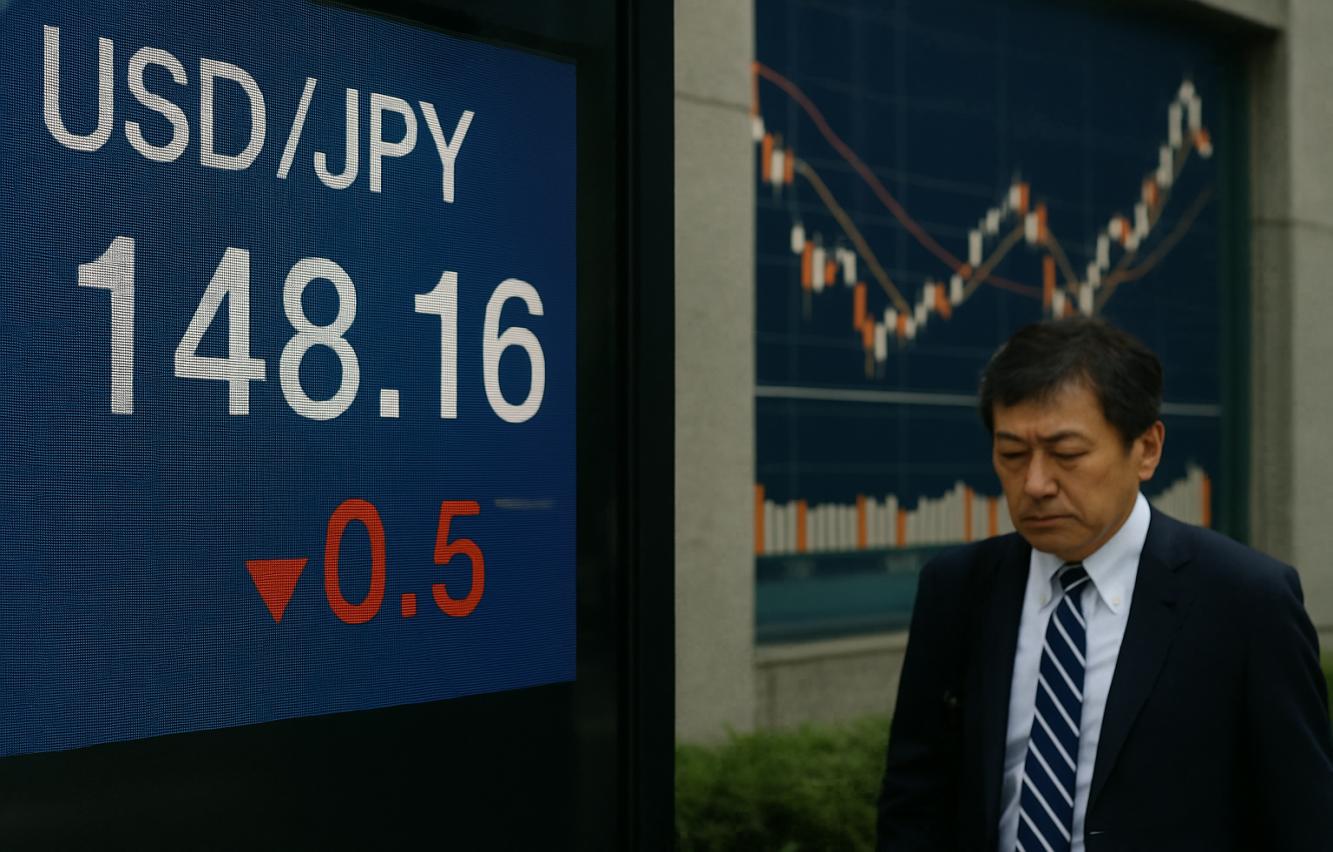
Recently, according to a report from Singapore (Reuters), the sudden resignation of Japanese Prime Minister Shigeru Ishiba has triggered sharp fluctuations in the yen's exchange rate. This event not only reflects the fragility of Japan's current political landscape but also places the Japanese economy under the spotlight of the global market, exposing deep-seated structural contradictions. As the world's fourth-largest economy, the policy gap risks exposed by Japan at a critical moment are shaking market confidence in Japan's economic governance capabilities.
The Japanese yen fell 0.5% against the US dollar to 148.16 after the announcement, hitting a new low in nearly three months. It also dropped to its lowest level against the euro and the British pound in more than a year. This collective devaluation is by no means accidental; rather, it is a collective warning from the market that Japan's political vacuum period might trigger a policy shift. When investors began to bet that the forces within the Liberal Democratic Party advocating loose fiscal and monetary policies might rise to power, the cooling of expectations for the Bank of Japan's interest rate hike in September became inevitable. Hirofumi Suzuki, chief foreign exchange strategist at Sumitomo Mitsui Banking Corporation, pointed out that September may enter a period of policy observation, but the policy direction after October will entirely depend on the economic philosophy of the new prime minister. This policy uncertainty itself is becoming a fatal flaw that erodes the credit foundation of the Japanese yen.
The predicament that the Japanese economy is currently facing is essentially the double blow of lagging structural reforms and the impact of globalization. Although the GDP growth rate in the second quarter far exceeded expectations, this growth mainly relied on the rebound in exports and inventory adjustments, and the endogenous growth momentum remained weak. When the change of political leadership may reverse the monetary tightening achievements accumulated since Abenomics, corporate investment decisions are bound to fall into a wait-and-see mode. The warning from Saxo Bank's chief investment strategist, Charu Chanana, hit the nail on the head: Volatility in the yen, bond and stock markets will remain high until a successor becomes clear. This fluctuation is not a temporary change in market sentiment, but rather a fundamental question about the sustainability of Japan's economic governance system.
The soaring of the Japanese stock market coexists with the historical high of government bond yields. This seemingly contradictory market performance actually reflects a serious divergence among investors regarding risk pricing for different asset classes. Stock market investors are betting that the new prime minister may introduce a larger-scale economic stimulus plan, while bond market investors are preparing for a potential increase in debt risks due to fiscal expansion. This divergence in asset prices is essentially a vote on the consistency of Japan's economic policies. When the yield on 10-year government bonds hovers around 1%, what the market is truly concerned about might not be the yield itself, but whether the Japanese government can maintain fiscal discipline amid political changes.
The major economies around the world have entered a cycle of monetary policy divergence. The expectation of the Federal Reserve cutting interest rates and the possible reversal of the Bank of Japan's interest rate hike path are reshaping the international capital flow pattern. The unexpected change of political leadership in Japan at this time undoubtedly magnifies the risk of such policy mismatches. When the eurozone was plunged into turmoil due to the political crisis in France and the US dollar fluctuated because of weak employment data, Japan should have played the role of a stabilizer. However, the chain reaction triggered by the prime minister's resignation has made Japan a new variable that intensifies the uncertainty in the global market.
The harm of this uncertainty to the Japanese economy is beginning to show. Enterprises' postponement of capital expenditure plans, consumers' reduction of non-essential spending, and foreign institutions' downgrading of Japan's asset ratings - these micro-level changes will eventually accumulate as growth obstacles to the macroeconomy. What is more serious is that when global investors start to reevaluate the risk premium of Japanese assets, Japan may face a vicious cycle of capital outflow and currency depreciation. The "October observation period" mentioned by Sumitomo Mitsui Bank strategists is essentially a deadline set by the market for Japan's economic governance system.
In today's era of deep integration of globalization, any policy wavering in a major economy will have spillover effects. The political and economic vulnerabilities exposed by Japan at this moment not only concern its own development trajectory, but also will affect the stability of the regional and even global economic pattern. What Japan needs is not merely temporary policy patches, but the courage and wisdom to fundamentally reconstruct its economic governance system. Otherwise, the market turmoil triggered by this change of prime minister may evolve into a new starting point for Japan's long-term economic stagnation.

报告显示,中国电力投资加速增长,预计2024年电网基建投资将超过5300亿元。
近日,市场迎来了一则引人注目的消息:工业巨头3M公司(MMM.N)在本周五公布了其季度业绩报告,随后股价飙升至近两年来的
最近,外媒给OpenAI算了笔账,今年可能要血亏50亿美元。
近日,巴黎奥运会和世界铁人三项协会联合发布了一项重大决定,宣布因塞纳河水质污染问题,原定于近期进行的奥运会铁人三项首次下
当地时间7月18日,法国巴黎发生了一起令人震惊的持刀袭警事件。
近期,一则重大消息在国际舞台上引起轩然大波,马来西亚宣布加入金砖国家。
调查发现,互联网和智能手机的使用干扰了韩国近五分之一学生的生活。